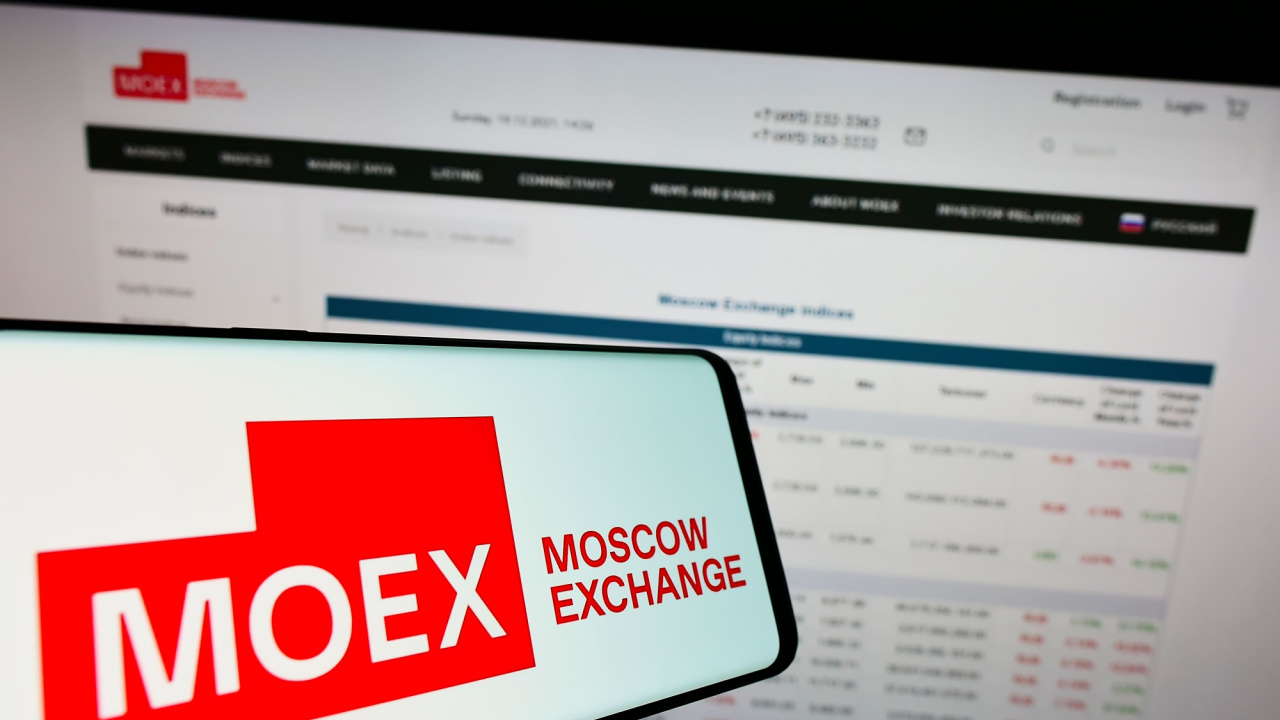by Lubomir Tassev
The Moscow Exchange has proposed to legalize the issuance of receipts for digital financial assets. The trading platform says this will allow custodians to offer clients who are not ready for distributed ledgers to essentially work with securities. MOEX also plans to become a licensed crypto exchange operator.
The leading exchange for equities and derivatives in Russia has drafted new legislation that would authorize depositories to issue receipts for digital financial assets (DFAs). In current Russian law, the broad term ‘DFAs’ encompasses cryptocurrencies in the absence of a more precise definition, but mainly refers to digital coins and tokens that have an issuer.
Under such arrangement, DFA receipts can be traded as securities, explained Sergey Shvetsov, who heads the supervisory board of the Moscow Exchange (MOEX). During the latest edition of the International Banking Forum, the official emphasized that the exchange “will naturally enter this market” and stated:
We have prepared a project that allows you to issue receipts for digital assets, then these receipts are circulated as securities.
MOEX has already filed the respective bill with the Central Bank of Russia (CBR) and will also coordinate the initiative with the Ministry of Finance. The legislation will provide those who are not ready to work with distributed ledgers and afraid of custodial risks an opportunity to transfer these risks and be able to issue securities, Shvetsov added.
“In order for DFAs to develop, we want to propose that the market itself makes the choice – blockchain accounting or depositary accounting,” he further elaborated, reminding the audience that the Moscow Exchange also wants to obtain a license from the CBR to operate as a digital asset exchange. In August, MOEX announced its intention to launch a DFA-based product by the end of the year.
“If such a law is adopted, Russian depositories will be able to accumulate DFAs on their accounts in the blockchain and give receipts against them to their clients. As soon as a customer needs the underlying asset, he would cancel the receipt and receive his digital asset on his blockchain account,” Shvetsov was quoted as saying by the Prime business news agency.
Support has been growing in Moscow to permit the use of digital assets such as cryptocurrencies for international settlements amid sanctions, while it’s still unclear if regulators will allow their free circulation inside the country. In any case, Russia must create its own crypto infrastructure, according to the head of the parliamentary Financial Market Committee. Anatoly Aksakov recently said that the stock exchanges in Moscow and Saint Petersburg are ready to provide it.
Do you expect the Moscow Exchange to become a major player in Russia’s crypto market? Share your thoughts on the subject in the comments section below.
Lubomir Tassev is a journalist from tech-savvy Eastern Europe who likes Hitchens’s quote: “Being a writer is what I am, rather than what I do.” Besides crypto, blockchain and fintech, international politics and economics are two other sources of inspiration.
Image Credits: Shutterstock, Pixabay, Wiki Commons, T. Schneider / Shutterstock.com
Disclaimer: This article is for informational purposes only. It is not a direct offer or solicitation of an offer to buy or sell, or a recommendation or endorsement of any products, services, or companies. Bitcoin.com does not provide investment, tax, legal, or accounting advice. Neither the company nor the author is responsible, directly or indirectly, for any damage or loss caused or alleged to be caused by or in connection with the use of or reliance on any content, goods or services mentioned in this article.
Ripple CEO: SEC Lawsuit Over XRP ‘Has Gone Exceedingly Well’
The CEO of Ripple Labs says that the lawsuit brought by the U.S. Securities and Exchange Commission (SEC) against him and his company over XRP “has gone exceedingly well.” He stressed: “This case is important, not just for Ripple, it’s … read more.
Oman to Incorporate Real Estate Tokenization in Virtual Assets Regulatory Framework
Real estate tokenization is set to be incorporated into Oman Capital Markets Authority (OCMA)’s virtual asset regulatory framework. According to an advisor with the authority, the tokenizing of real estate will open investment opportunities for local and foreign investors. Real … read more.
Check all the news here
Author
Administraroot


